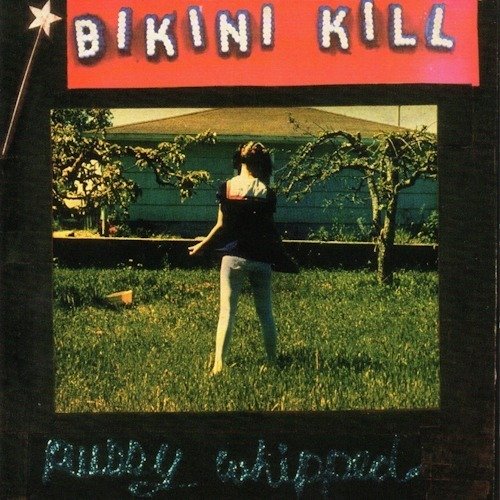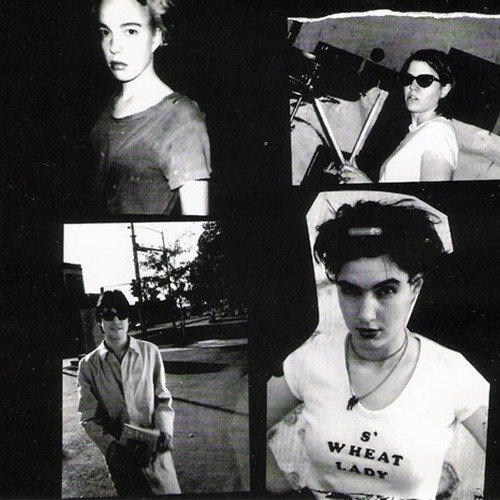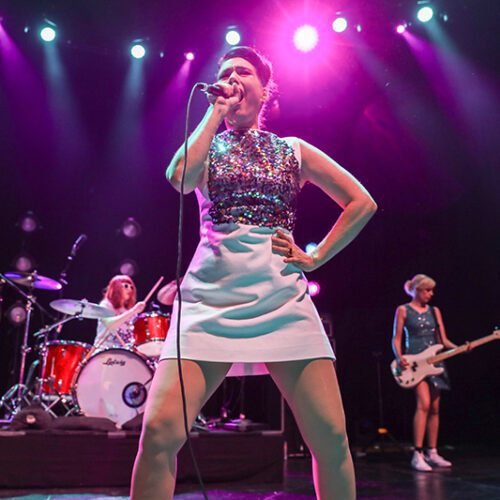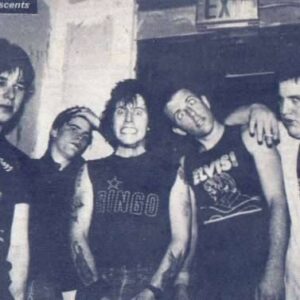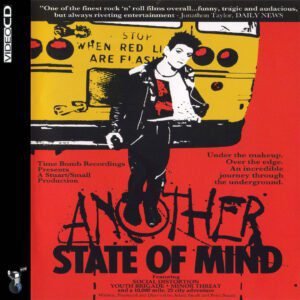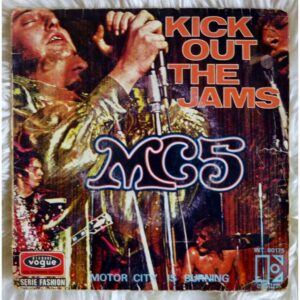Bikini Kill – Rebel Girl
Description
“Rebel Girl” is a song by American punk rock band Bikini Kill. The song was released in three different recorded versions in 1993 – on an EP, an LP, and a 7-inch single. The single version was produced by Joan Jett and features her on guitar and background vocals. Widely considered a classic example of punk music, the song remains emblematic of the riot grrrl movement of the 1990s. In 2021, “Rebel Girl” was listed at number 296 on the updated list of Rolling Stone’s 500 Greatest Songs of All Time.
Music and lyrics
“Rebel Girl” is one of Bikini Kill’s earliest original compositions, and was performed in concert as early as 1991. Songwriting credit is given to all four bandmembers. The lyrics are attributed to Hanna, and were reportedly inspired by the influential feminist artist Juliana Luecking.
The song’s theme and lyrics overturn the traditional heterosexual tropes of pop music. Giving voice to an unconcealed lesbian perspective, it is a frank and explicit “tribute to, and love song for, another woman”. In a larger sense, it is viewed as an ode to feminist solidarity. It is considered to be Bikini Kill’s signature song, but it has an equally enduring affiliation with the feminist movement known as riot grrrl. From their start, Bikini Kill was inextricably linked to riot grrrl and, more than any other song, “Rebel Girl” was that movement’s most widely recognized musical expression, its “one definitive anthem”.
Bikini Kill
Kathleen Hanna, Tobi Vail, and Kathi Wilcox were all studying at The Evergreen State College in Olympia, Washington during the late 1980s. Hanna worked at Reko Muse, a small collective art gallery that would frequently host local bands to play shows between art exhibitions. There she met Vail after booking her band, the Go Team. At the same time, Vail was writing Jigsaw zine and working with friend Wilcox. Vail wrote at the time in Jigsaw:
I feel completely left out of the realm of everything that is so important to me. And I know that this is partly because punk rock is for and by boys mostly and partly because punk rock of this generation is coming of age in a time of mindless career-goal bands.
With Billy Karren, Bikini Kill self-released a cassette of demos during summer 1991 titled Revolution Girl Style Now. Hanna, Vail and Wilcox also began collaboration on Bikini Kill zine during their first tours in 1991. The band wrote songs collaboratively and encouraged a female-centric environment at their shows, urging women to come to the front of the stage and handing out lyric sheets. Bikini Kill made it their goal to inspire more women to join the male-dominated punk scene. Hanna would also stage dive into the crowds to personally remove male hecklers who would often verbally and physically assault her during shows. However, the band’s reach did include a large male audience in addition to the female target audience.

After releasing the Bikini Kill EP on the indie label Kill Rock Stars in 1992, Bikini Kill began to establish their audience. Members of Bikini Kill also began to collaborate with other high-profile musicians, including Joan Jett, whose music Hanna has described as an early example of the riot grrrl aesthetic. Jett produced the single “New Radio”/“Rebel Girl” for the band after members of Bikini Kill heard “Activity Grrrl”, a song Jett wrote about the band. Bikini Kill’s debut album Pussy Whipped, released in 1993, included the song “Rebel Girl”. “Rebel Girl” has become one of Bikini Kill’s signature songs as well as a widely-recognized anthem for the riot grrrl movement. While “the unforgettable anthem”, as Robert Christgau calls it, never charted due to its independent release, it has received widespread critical acclaim. It has been called a “classic”, and praised as part “of the most vital rock-n-roll of the era”. Bikini Kill’s second album Reject All American was released in 1996, and the band broke up the next year.
Despite retrospective acclaim, at the time the band was criticized for excluding men, and even Rolling Stone described Bikini Kill’s first album as “yowling and moronic nag-unto-vomit tantrums.” “My joke is always like, I didn’t just hit the glass ceiling, I pressed my naked [breasts] up against it,” Hanna said of that time. Bikini Kill eventually called for a “media blackout” due to their perceived misrepresentation of the movement by the media. Their pioneer reputation endures but, as Hanna recalls:
[Bikini Kill was] very vilified during the ’90s by so many people, and hated by so many people, and I think that that’s been kind of written out of the history. People were throwing chains at our heads – people hated us – and it was really, really hard to be in that band.


